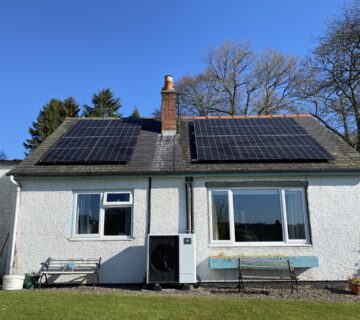By: John C, Operations Manager BRB Ltd.
In response to the recent BBC article: https://www.bbc.co.uk/news/uk-scotland-66372469
The recent consultation proposed by Patrick Harvie regarding the potential downgrading of energy efficiency ratings for homes with gas boilers has raised concerns about the short-sightedness of such a proposal.
While it is important to consider the environmental impact of gas boilers, it is equally crucial to adopt a holistic approach that takes into account the various factors influencing energy efficiency.
This reflection piece aims to delve into the potential consequences of this proposal from a short-sighted perspective.
Limited Focus on the Root Cause:
While gas boilers undoubtedly contribute to greenhouse gas emissions, solely targeting them without addressing the broader context could be counterproductive.
This proposal seems to overlook the root cause of high emissions, which lies not solely in the heating systems but also in the energy sources that power them.
By focusing solely on downgrading energy efficiency ratings for gas boilers, there is a risk of neglecting the larger issue of transitioning to cleaner energy sources or incentivizing renewable alternatives.
Financial Implications:
Another short-sighted aspect of this proposal is its potential financial impact on homeowners.
Many individuals have invested significant resources in installing gas boilers, relying on their energy efficiency ratings to determine the long-term cost-effectiveness of their investment.
Downgrading these ratings could lead to financial losses and discourage individuals from making environmentally conscious choices in the future.
Instead of punishing homeowners, a more comprehensive approach should be considered, which includes financial incentives to encourage the transition to greener technologies such as the https://www.homeenergyscotland.org/funding/grants-loans/
The Role of Technology:
The proposed downgrade fails to acknowledge the potential for future advancements in gas boiler technology.
While gas boilers may currently have a negative impact on energy efficiency ratings, there is ongoing research and development focused on improving their efficiency and reducing emissions.
By prematurely downgrading their ratings, we risk stifling innovation and discouraging further progress in this area.
A more forward-thinking approach would be to encourage research and development in renewable heating technologies, while simultaneously supporting the transition towards cleaner energy sources.
The Importance of an Integrated Approach:
Addressing energy efficiency requires a comprehensive and integrated approach that considers multiple factors, including energy sources, insulation, and individual energy consumption habits.
By solely focusing on gas boilers, we risk overlooking other significant contributors to energy inefficiency within homes.
It is crucial to promote a holistic understanding of energy efficiency and encourage a variety of energy-saving measures, rather than solely targeting one aspect.
Conclusion:
Patrick Harvie’s consultation on downgrading energy efficiency ratings for homes with gas boilers seems to adopt a short-sighted perspective.
While it is essential to address the environmental impact of gas boilers, doing so without considering the larger context may have unintended consequences.
A more comprehensive approach, incorporating renewable energy sources, financial incentives, and technological advancements, is essential for successfully tackling energy efficiency without penalizing homeowners.
By adopting a broader view, we can ensure a sustainable and effective transition towards greener and more energy-efficient homes.





